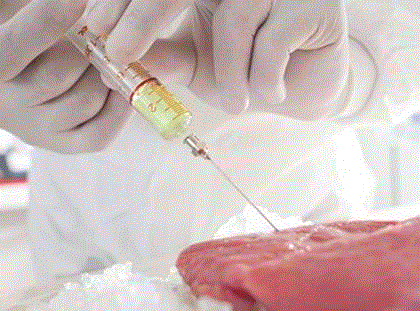Horsemeat: Veterinary drugs found in Polish beef samples
- As posted on The Grocer
Dutch food safety inspectors have found residues of drugs that are not allowed in the food chain in two samples of Polish beef adulterated with horsemeat.
One sample tested positive for the antibiotic oxytetracycline, with the second showing residues of sulfadimidine, Dutch food safety body NVWA said today.
Neither drug is allowed in the food chain in the European Union but there are tolerance limits in place. In the case of the sample with oxytetracycline, the quantities found were seven times higher than the tolerance limit, a spokesman for NVWA said. The sample with sulfadimidine showed quantities below the tolerance limit.
The samples were taken from a cold store where Dutch officials had previously found Polish beef that contained horse DNA.
Some of the beef from the cold store went to Dutch company Boltjes Meat Snacks, and NVWA has asked Boltjes to recall its products in light of the antibiotics discovery. However, it stressed that even at seven times above the tolerance level, the quantities were so small they did not pose a risk to human health.
So far, NVWA has tested 500 samples of beef for horsemeat. The two samples announced today are the first to test positive for veterinary drugs.
In recent weeks, officials in Portugal and Switzerland have found the veterinary drug phenylbutazone (also known as bute) in products containing horsemeat. Bute is not allowed in any quantity in the food chain, and there is no tolerance limit.

No comments:
Post a Comment